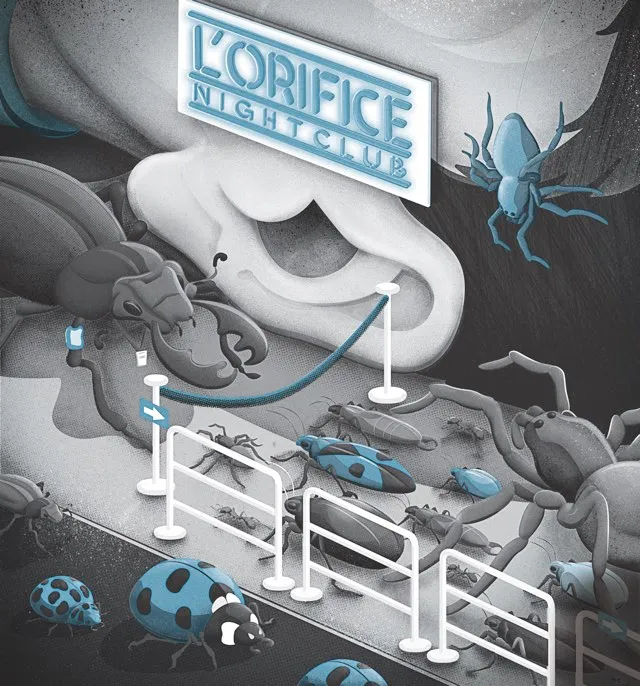Let’s put your mind to rest about one thing: there is no evidence that we swallow an average of eight spiders a year. Or any other number for that matter. Spiders are generally quite timid creatures and tend to avoid vibrations (from breathing and snoring) and warm, moist environments. Furthermore, this is a completely unverifiable statistic: if you swallowed something whole, in your sleep, how would you ever know?
That’s the good news. The bad news is that every orifice other than the mouth is fair game. In 2017, a doctor removed a live cockroach from deep in the sinus cavity of a woman in Chennai, India. Leeches can also work their way into the nose, rectum, urethra and vagina. Endoscopy procedures have also found ants, ladybirds and wasps in the rectum.

But the real hotspot for creepy-crawlies is the ears. There are numerous reports of cockroaches, spiders, moths and even an assassin bug being removed from the ears of patients complaining of persistent buzzing sounds. Earwigs probably get their name from the distinctive shape of their hindwings, rather than their preferred habitat. But like many insects, they do occasionally climb into the ear – probably attracted by tasty deposits of earwax.
Rest assured, though, having a creepy-crawly enter your body is extremely rare – especially in the UK – and doctors have always been able to remove the beasties without any serious medical complications.
Read more:
Subscribe to BBC Science Focus Magazine for fascinating new Q&As every month and follow @sciencefocusQA on Twitter for your daily dose of fun facts.
